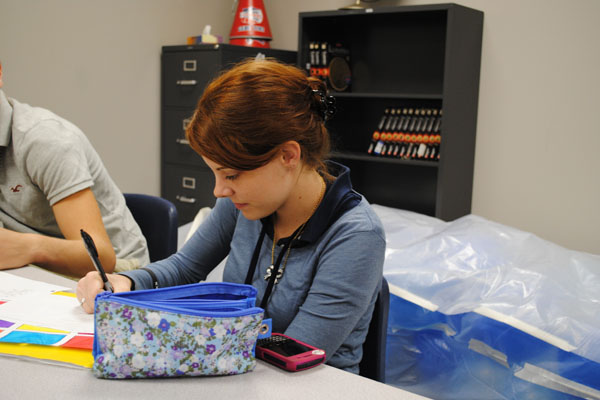With graduation coming up, there are a lot of things that seniors should be thinking about. College is one of them. By this time, most people know where they’re going to be attending school in the fall, but what do you do when you get there?
Here are a few tips I’ve picked up during my first year in college that might be helpful.
Try to go in with credits.
If you can get credits during high school, whether it’s from A.P. or dual credit classes or even taking some courses at a local community college, the more credits you go in with, the fewer classes you’ll have to take once you get there. The fewer classes you’re taking, the more money you’ll save. Those who are considered to be a higher classification get to register for classes sooner, too, so you’ll have a better selection of course offerings and times.
Schedule your classes accordingly
Most colleges will assign you an advisor who will help you pick your classes for each semester and make sure that you stay on the right track for graduation. But that doesn’t mean that they know your personal habits. Are you a morning person who likes to go to bed early? If so, then take a lot of morning classes so you’re done by lunch and can work during the afternoons. Are you a late riser who hates getting up before noon? Don’t sign up for an 8 a.m. class if you know you’ll never go. I thought that since I had to be at school every morning at 9 a.m. for high school, I would be okay going to a 9 a.m. class three days a week. No. Especially when it’s cold outside and you have to walk all the way across campus.
Go to class
No matter how much you hate your class or your professor, go, especially on the first day. That’s the day your professor will hand out the syllabus for the class and tell you if you really do need the text book or not. The syllabi in college are not like the ones in high school where you look at it and throw it away. Keep this. It has your professors contact information, their attendance policy (check this, because some professors give you so many days to be sick and others just give you a total number of days you can miss, regardless of reasons) as well as grading policy. It will also have upcoming assignment due dates and test days on it.
Roommates are important
Since most colleges require freshmen to live on campus, you’re probably going to have a roommate. Your roommate doesn’t have to be your best friend, but you should at least be able to get along with the person you’re going to share 80 square feet with for a few months. If you just can’t live with your roommate, you can request a room change. Don’t feel bad, I had to do it within the first few weeks of being at school. We just had lifestyle differences and living together wasn’t going to be good for either of us.
Bring your supplies when you move in
Make sure that when you head up to school on move in day, you’ve got your basic essentials for dorm life. Check the website for your residence hall on the bedding. The standard dorm requires extra-long twin sheets, but some halls just have regular twin sheets. Make sure that you’ve got a wide variety of clothes for all kinds of occasions. Sweats for lazy study days in the dorms, jeans and t-shirts for class, athletic wear and at least one nice outfit for formals. Bring flip-flops for the showers, because even if they’re cleaned regularly, you don’t want to stand barefoot where someone else was just standing barefoot.
It doesn’t make sense to bring everything with you, though. Talk to your roommate (if you can) before you move in about who will bring the mini fridge, a microwave, a TV and any gaming system you might want. If you’ve got a computer and a printer, you can buy paper and ink once you’re done moving into your room. Make sure to go to the store when you’re done moving in so that you can pick up anything you might have left at home as well as some food to keep stashed in your room. But don’t buy out the entire snack-food aisle, most colleges have dining halls around the campus where you can get meals on a pre-paid meal plan. I mean, this food is already paid for in your tuition and fees, you might as well eat it.
Make friends in class
Get the name and number of at least two people in each of your classes. If you do miss class, they can pass on notes and assignments, as well as help you study for tests.
Don’t forget to bring the little things
You’ll need command hooks. Lots and lots of command hooks, since most dorms won’t let you poke holes in the walls. You’ll need lots of tape so that you can decorate your boring white walls. Bring lots of quarters. While some schools provide ‘limitless laundry’ – meaning that your laundry fees are part of your tuition and fees, so you don’t need quarters for the laundry room- you’ll still have to buy your own scantrons and test booklets for each test that you take. You might also want to get a soda from the vending machine in between classes.
Don’t stress
College is the time to have fun, but don’t blow off your classes. It’s not like high school. You won’t be in class all day, taking the same classes every day. You’ll probably spend about four to five hours in class each day, which means you’ll have a lot of free time. Use this time to get ahead on homework, reading or even get an on campus job. On campus jobs only pay minimum wage, but they will build your work schedule around your class schedule and your employers realize you’re a student first.




